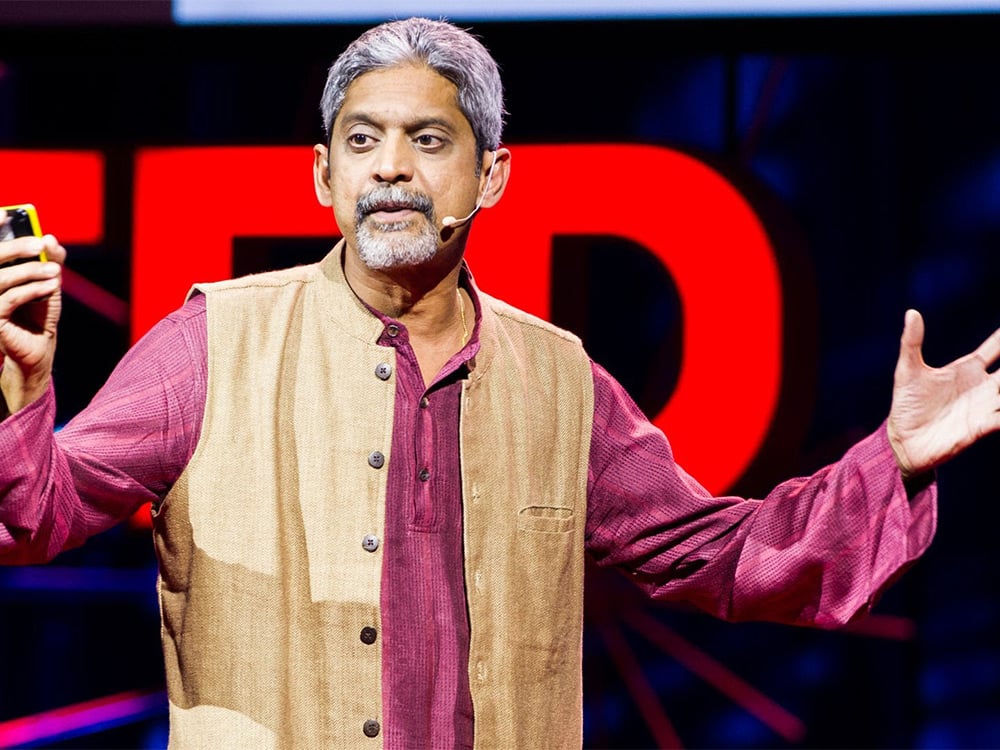Call for roll-out of lay counselling to tackle harmful drinking and depression in India
16 December 2016 London School of Hygiene & Tropical Medicine London School of Hygiene & Tropical Medicine https://lshtm.ac.uk/themes/custom/lshtm/images/lshtm-logo-black.pngLeading psychiatrist Professor Vikram Patel has published two studies in The Lancet that he argues provide strong evidence for the roll out of lay counselling services in primary care across India to tackle depression and harmful drinking.
The trials, funded by Wellcome and run in Goa, India, reveal that lay counselling provides results better than enhanced care from primary care physicians for harmful drinking and severe depression. The studies also show the approach is cost-effective, and therefore viable to invest in and scale up.
One third of the global burden of mental illness falls on India and China, more than all high-income countries combined. Yet in both countries less than 1% of the national healthcare budget is allocated to mental health care.
The Government of India's recent National Mental Health Survey has reported one in 20 adults are affected by depression and nearly one in 10 adult men are affected by harmful drinking. Together, the two disorders targeted in the PREMIUM trials affect 65 million Indian adults at any given point in time. Yet, the treatment gap for both disorders is a staggering 85%.
Vikram Patel, Professor of International Mental Health at the London School of Hygiene & Tropical Medicine, is a pioneer of low-cost, effective treatments to tackle the vast unmet needs for care for people with mental health problems in India.
Using lay counsellors - who, like other community based workers, have no professional training in mental health, but have had two weeks of intensive training in delivering specific counselling treatments and receive continuing peer supervision to ensure quality of care - aims to address the lack of mental health professionals in India.
The treatment programmes were developed in collaboration with Professor Christopher Fairburn at the University of Oxford in the UK, and have the same theoretical foundation as evidence based psychological treatments used by mental health professionals in high income countries.
Prof Patel, who is also a Wellcome Principal Research Fellow, said: "The interventions are brief and crucially were both delivered by the same counsellor - mimicking the real world of primary care.
"We now have the proof that these treatments are both effective and cost-effective. The Indian Government can't ignore the strong argument for the roll-out of lay counselling across India. I hope other low and middle income country governments will also see this as adding to the strong evidence for investment in psychological treatments delivered by non-specialist health workers.
"Several other investigators, including our own group in India, are evaluating such treatments for a range of other groups, from mothers to adolescents, making this area of research one of the most vibrant and productive directions in global mental health"
Dr Mary DeSilva, Head of Population, Environment and Health at Wellcome, said: "It is crucial that treatments being developed for low and middle income countries are cost-effective, contextually appropriate and can easily work on the ground in settings where resources are scarce.
"These robust studies prove there are cost-effective solutions to the shortage of trained mental health specialists in low resource settings. They also provide food for thought for high income countries, where, despite their affluence, mental health service provision is frequently sub-optimal, and people with depression and alcohol dependency often don't get the support they need."
The trials were run by NGO Sangath in partnership with the Government of Goa's Directorate of Health Services.
Publications
- Nadkarni et al. Counselling for Alcohol Problems (CAP), a lay counsellor-delivered brief psychological treatment for harmful drinking in men, in primary care in India: a randomised controlled trial The Lancet. DOI: 10.1016/S0140-6736(16)31590-2
- Patel et al, The Healthy Activity Program (HAP), a lay counsellor-delivered brief psychological treatment for severe depression, in primary care in India: a randomised controlled trial. The Lancet. DOI: 10.1016/S0140-6736(16)31589-6
Our postgraduate taught courses provide health practitioners, clinicians, policy-makers, scientists and recent graduates with a world-class qualification in public and global health.
If you are coming to LSHTM to study a distance learning programme (PG Cert, PG Dip, MSc or individual modules) starting in 2024, you may be eligible for a 5% discount on your tuition fees.
These fee reduction schemes are available for a limited time only.
